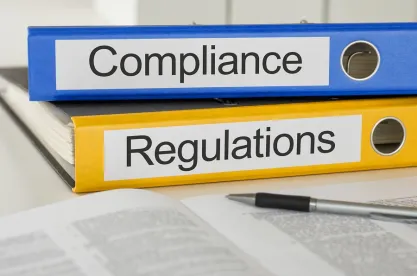Wait a minute! Haven't we done everything we're supposed to do? We've clearly defined our charitable mission. We formed our non-profit corporation. We got our 501(c)(3) determination letter from the Internal Revenue Service ("IRS"). We adopted our bylaws. We've elected our board. And we've raised over $25,000 this year!
But, there is more you have to do. It's that last piece of your success story that probably nailed you on the license requirement. North Carolina law requires most charities to obtain a license to raise funds within this state. There is an exemption for certain charities which raise less than $25,000, but you are already too successful for that one to apply.
North Carolina's Charitable Licensing Requirement and Exemptions
 In an attempt to deter fraud under the guise of charitable requests, North Carolina adopted Chapter 131F of the North Carolina General Statutes titled "Solicitation of Contributions" (the "Act"). The Act generally requires a "charitable organization" to obtain a license from the North Carolina Secretary of State if it intends to:
In an attempt to deter fraud under the guise of charitable requests, North Carolina adopted Chapter 131F of the North Carolina General Statutes titled "Solicitation of Contributions" (the "Act"). The Act generally requires a "charitable organization" to obtain a license from the North Carolina Secretary of State if it intends to:
-
Solicit contributions in North Carolina;
-
Have funds solicited on its behalf in North Carolina; or
-
Participate in, or sponsor, charitable sales promotions in North Carolina.
In other words, the Act covers most of the ways charities raise money: asking for the money themselves; hiring others to raise money; and selling goods or services offered by others to raise money.
A "charitable organization," with limited exceptions, is any group that:
-
Has a Section 501(c)(3) tax exempt determination from the IRS;
-
Says it has a Section 501(c)(3) tax exempt determination (even if it does not);
-
Says it is established for a charitable or civic purpose; or
-
Raises funds based on a charitable or civic appeal.
An out-of-state organization with a chapter, branch, area office, or affiliate soliciting contributions in North Carolina also must be licensed.
There are a number of exemptions to the licensing requirement, including ones for:
-
Organizations that raise less than $25,000 in contributions in a calendar year if they do not compensate their officers, persons who solicit contributions for them, and certain other people connected with such organizations.
-
Government agencies;
-
YMCAs and YWCAs; and
-
Volunteer fire departments.
There are other exemptions, but they are narrow, and if your organization wants to rely upon these narrow exceptions, you should first carefully analyze both your situation and the requirements of the exemption. Also, an organization that qualifies for an exemption may choose to be licensed.
The Licensing Process
The licensing process is fairly straightforward. The license application must be signed under oath by your organization's treasurer or other chief fiscal officer. There are a number of informational requirements that appear burdensome at first, including financial reporting requirements, but many of these requirements may be satisfied by simply providing a copy of your organization's most recent IRS Form 990 documentation. A newly organized charity with no financial history will have to provide a budget. Your organization's IRS 501(c)(3) tax determination letter must be provided, as must information about any paid solicitor arrangements. (See the discussion below under "Licensing of other Individuals and Entities" ).
The licensing fees range from $50 per year for an organization that has received less than $100,000 in contributions to $400 per year for an umbrella registration for 16 or more related organizations.
Disclosure Requirements
The Act requires that charitable organizations use contributions received only for the purposes stated in their filed licensure application, and make a number of disclosures available "at the point of solicitation." These include:
-
The charity's name and principal place of business;
-
The purpose for which the solicitation is being made;
-
If requested, the name and either the address or telephone number of a representative to whom inquiries can be addressed;
-
If requested, the amount of the contribution which may be deducted as a charitable contribution under federal income tax laws;
-
If requested, the source from which a written financial statement meeting certain requirements may be obtained; and
-
The following disclosure displayed prominently on printed materials, with underlining, bolding, or bordering:
Financial information about this organization and a copy of its license are available from the State Solicitation Licensing Branch at [telephone number]. The license is not an endorsement by the State.
As a practical matter, these requirements call for careful drafting of printed materials. Rather than counting on your volunteers to recite from memory those items of information that must be provided "if requested," it makes sense to provide the information in the printed materials. The tax treatment disclosure needs to be handled carefully, because a charity generally should not tell a donor that the donor's contribution is deductible as deductibility turns on facts relevant to the donor and unknown to the charity.
Special rules apply to solicitations by law enforcement officers and emergency service employees. For example, law enforcement officers and emergency service employees generally may not solicit contributions while in uniform or on duty, though there are exceptions.
The Act also imposes special disclosure requirements for collection receptacles for donations of used clothing and other items. One set of requirements applies to charities, and another applies to non-charitable organizations.
Licensing of Other Individuals and Entities
The Act requires that "fund-raising consultants" and "solicitors" be separately licensed. Solicitors are paid agents, not employed by the charity, who directly ask for money for the charity. Fund-raising consultants are paid agents who help with solicitation efforts but do not directly ask for money or have custody of funds.
The Act requires that solicitors post financial security with the Secretary of State. It also imposes special requirements on the contracts fund-raising consultants and solicitors enter into with charities, and imposes detailed recordkeeping requirements on solicitors. The Act also imposes onerous "point of solicitation" disclosure requirements on a solicitor, including the disclosure that he or she is a paid solicitor. Solicitors for "religious organizations" like churches, however, are exempt from the Act.
"Coventurers" — organizations that help charities conduct sales promotions for a "cut" of the sales or other compensation, also must be licensed.
These requirements do not apply to your charity's employees, board members, or volunteers. They only apply to the "paid outsiders" your charity engages to help raise funds.
Specific Prohibitions and Penalties
The Act prohibits violations of the licensing and disclosure requirements for charitable organizations and any misleading statements in charitable solicitations. It also prohibits entering into contracts with unlicensed fund-raising consultants or solicitors, falsely claiming an affiliation with a charity, or suggesting that a charitable solicitation license or report constitutes endorsement or approval by the State.
The Act gives both the North Carolina Secretary of State and the North Carolina Attorney General extensive enforcement powers. Violations can constitute unfair trade practices and Class 1 misdemeanors under North Carolina law.
Compliance with Laws of Other States
If your charity solicits funds in other states, it needs to review the applicability and specific requirements of the laws of those states as well as North Carolina. If your charity solicits contributions on a website or through social media, it needs to develop a strategy for dealing with contributions that come from residents of states in which it is not licensed.
Conclusion
In our evermore regulated modern life, purity of purpose and goodness of heart are not enough to protect those who only wish to help others. The State of North Carolina has enacted legislation to protect donors from others who are not so pure and good, and your charity must comply with all of these regulations and licensing requirements.




 />i
/>i
